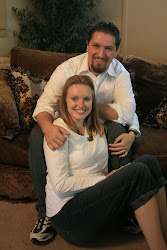My Facebook news feed is literally my news feed: Things happen and change so fast - and the mainstream media doesn't keep up. I found that CNN, the BBC and the NY Times were always about 12-18 hours behind. Therefore, to check the news, I first went to Facebook and checked status updates, and the pictures and links that people posted. It was on Facebook that I learned about the tanks rolling towards the Pearl Roundabout - about an hour after it actually happened (someone had uploaded it to YouTube). Eventually, Al Jazeera (out of Qatar) started a live blog that was pretty up to date (though they've since shut that down and focused their reporting on Libya)
Even though the military has pulled out, there have been large demonstrations (both pro-government and pro-reform) and so I often check Facebook to see if/when protests are happening. Even tonight, before we went to the mall for a coffee and a stroll, I posted a status update asking if anyone had any pertinent information on traffic and protests. Not 5 minutes after I posted, I received a call from a friend who updated me on the security report he gets from his company.
I still check the news networks, though I find their articles a little tedious (often the first paragraph or two is the "new" news, and the rest is background). They are great if you don't live here, but since I do, much of the background information is kind of like me picking up a book and the book starting out with the ABC's. Its also been interesting to see how they portray the island. Here are some of the things I've noticed:
- Pearl Roundabout: The BBC, NY Times and CNN just can't get away from calling it the Pearl "Square". It's not a square in the sense that it's a natural place where people congregate. It's a big roundabout with a monument in the middle. Until the last week and a half, I've never seen more than three or four people standing there. I'm trying to decide if they still don't know its not a square, they now now after making a mistake but don't want to look stupid, call it a square to make the connection to Tahir Square (in Egypt), or have decided that it is now functioning like a square.
- Population: News sources are still saying that Bahrain has a population of about 750,000-800,000. Those reporters are still getting their information from the out-of-date CIA world fact book. In the last year or so, the government has admitted that there are about 1.1 million people here, and only 500,000-600,000 are Bahrainis (a sore point for many as there his a relatively high unemployment rate among young men).
I imagine that a lot of the observations about outside news organizations are commonly found in any situation. People in Egypt and Libya are undoubtedly thinking similar things. And I think that the reporting is a necessary way to break down a very complex situation into pieces that are easily digestible (I have found CNN's similarly formatted reporting of the Wisconsin demonstrations particularly helpful). Really, correcting the reporters makes me feel intellectual.





No comments:
Post a Comment